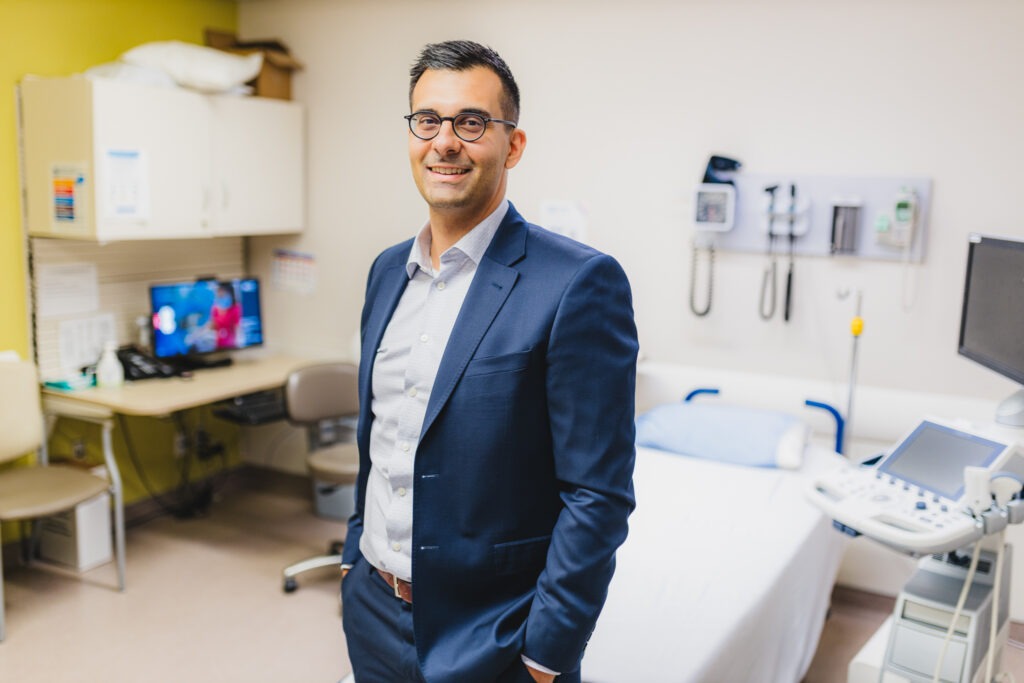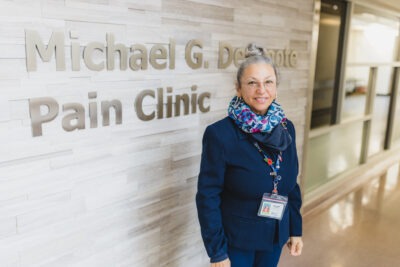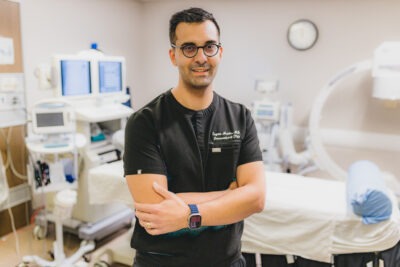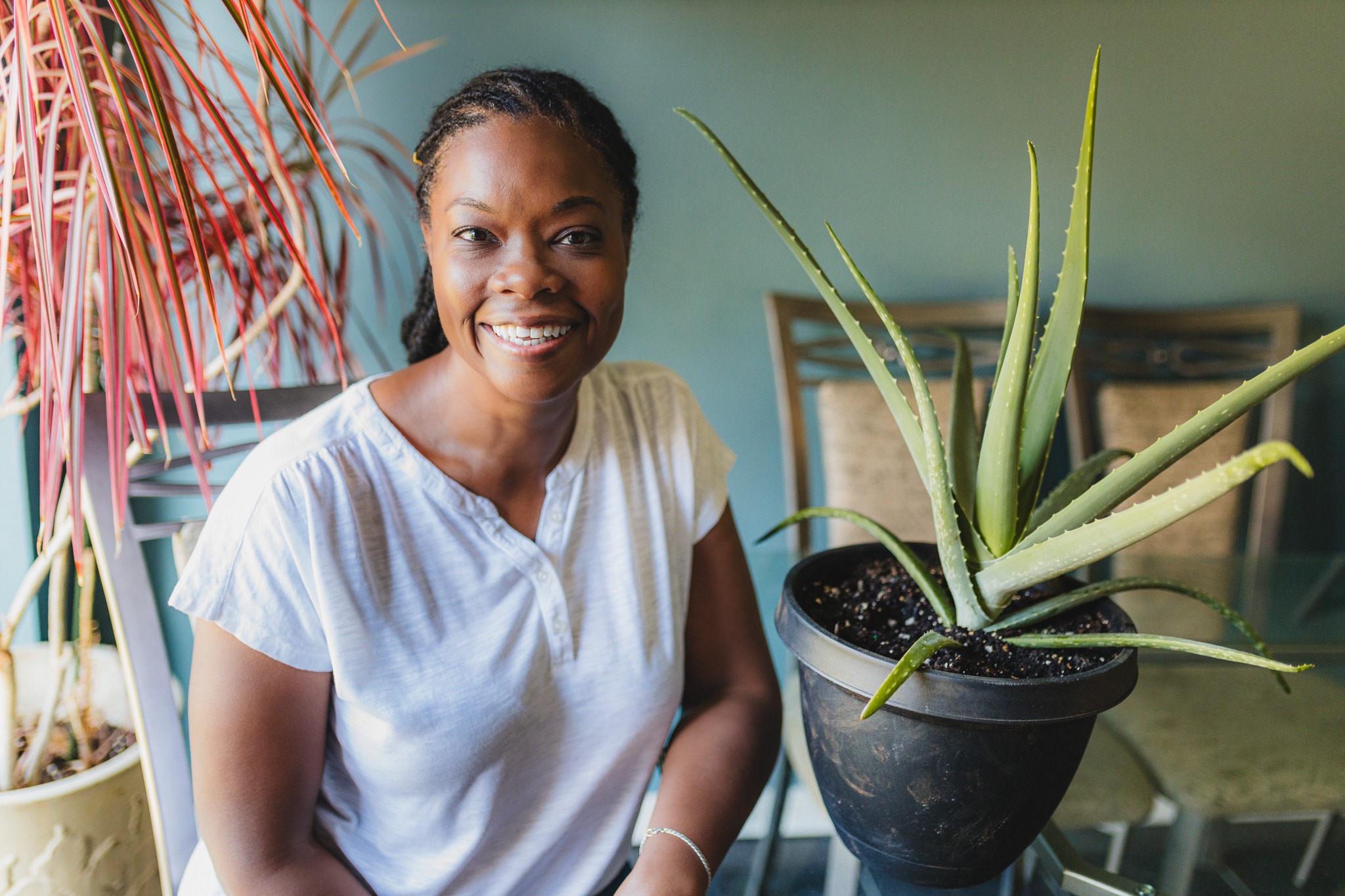
Celebrating 50 years of excellence in pain management
The Hamilton Health Sciences (HHS) pain clinic at our McMaster University Medical Centre is celebrating 50 years of supporting people across the region who live with chronic pain. What began in 1973 as one of the first pain clinics in Canada has evolved into the Michael G. DeGroote Pain Clinic, the largest academic, university-affiliated pain clinic in the country.
The clinic has taken a team approach to patient care since the beginning, with doctors, nurses, pharmacists, social workers, occupational therapists, physiotherapists, psychologists, researchers and more working together to bring patients the very best, leading-edge care. We’re recognizing this 50-year milestone for National Pain Awareness Week, Nov. 5 to 11.
Leading the way
Dr. Eleni Hapidou knew she had found her calling when she first visited Dr. Eldon Tunks, then the pain clinic’s director, almost 40 years ago as part of her studies. “I was a McMaster University student back then, studying pain as part of my PhD in psychology,” says Hapidou, who went on to become a psychologist with the clinic where she has been helping patients manage their pain for more than 30 years.

Dr. Eleni Hapidou is a psychologist with the Michael G. DeGroote Pain Clinic.
Hapidou, as a student, was there to learn from Tunks, a hospital psychiatrist who founded the pain clinic in 1973 and has since retired.
Tunks was inspired by pain management practices emerging from the University of Washington in the 1960s. This Seattle university launched the world’s first pain clinic focused on behavioural therapy, which teaches techniques for managing pain by reinforcing positive behaviours and coping strategies such as goal setting, relaxation methods and physical exercise. The approach was team focused, with different health-care providers working together to care for patients.
“People with chronic pain are often experiencing additional health concerns such as depression, anxiety, PTSD or substance use, so we need a variety of techniques to help our patients throughout their journeys,” says Hapidou. “We work together at the clinic as a team of health-care professionals to help patients manage different aspects of their health.”
A patient shares her experience:
Four-pronged approach

Dr. Eugene Maida is medical director of the Michael G. DeGroote Pain Clinic, and a physiatrist.
Each year, the clinic handles about 2,000 initial assessments, says Dr. Eugene Maida, medical director of the Michael G. DeGroote Pain Clinic, and a physiatrist.
“Our focus is on improving quality of life.” — Dr. Eugene Maida
Physiatrists are physical medicine, rehabilitation and pain medicine physicians. They help restore movement and function to people limited by disease or injury, and diagnose and treat a variety of medical conditions affecting the brain, spinal cord, nerves and musculoskeletal system. As well as being medical director, Maida also treats patients.
“We know that one in five people in Canada is affected by chronic pain,” says Maida. “We also know that about half of those people have suffered from chronic pain for more than 10 years.”
In many cases, pain can’t be cured so the goal is to give patients the tools they need to manage their symptoms effectively. This is accomplished through a four-pronged approach to pain management:
- Lifestyle changes: This includes physiotherapy, occupational therapy, psychology, and activity/exercise such as yoga and tai chi, as well as breathing, relaxation and mindfulness exercises.
- Medication management: Medications can be prescribed and monitored to help manage pain.
- Image-guided intervention: Real-time images are used to guide certain procedures, such as injections, aimed at reducing pain. For example, an ultrasound or x-ray can guide a doctor injecting anti-inflammatory medication into a patient’s lower back to relieve pain from a herniated disc or stenosis.
- Surgery: The clinic works closely with surgeons to help ensure that patients needing procedures are referred in a timely manner. However, surgery isn’t an option for everyone because in many cases pain can’t be cured. As a result, the clinic emphasizes a variety of approaches to help patients manage their pain.
“As a health-care team, we bring a breadth of options and opportunities for patients with complex pain management needs,” says Maida.
Helping patients take back control of their lives
Pain management programs are offered in small group settings, alternating between virtual and in-person depending on a patients’ needs and preferences. “Group participation gives our patients an opportunity to share their experiences with others living with similar chronic pain concerns,” says Maida. “They realize that they’re not alone.”
There’s also a specialized pelvic pain program, and a new comprehensive headache management program which will soon be introduced, likely in early 2024. This new program brings together a wide variety of health-care professionals to assess, diagnose and treat complex headache and facial pain conditions.
In order to visit the clinic, patients must be referred by their health-care provider, such as their family doctor or nurse practitioner. Some programs are third-party funded through Veterans Affairs, Workers’ Safety and Insurance Board, and insurance companies for motor vehicle accidents.
“Our focus is on improving quality of life,” says Maida. “We’re excited to mark 50 years of providing leading-edge care, and helping patients take back control of their lives through a combination of strategies learned at our pain clinic.”


